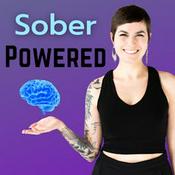A lot of people do Dry January hoping it will reset their relationship with alcohol, and then feel confused or discouraged when it doesn’t. Dry January works, just not in the way most people think it does. If you’ve ever taken a 30, 90, or even year-long break from drinking, felt better, and then slowly slid back into the same patterns, this episode will explain why. We’ll talk about why willpower works during the challenge but fails afterward, why the brain treats breaks as an exception instead of a turning point, and what actually has to change for sobriety to stick. Once you understand the difference between a pause and a rewire, a lot of self-blame starts to fall away.
E296-300 drinking motives and how problem drinking develops/escalates
Work with me:
Community & Meetings: Living a Sober Powered Life https://www.soberpowered.com/membership
Sober coaching https://www.soberpowered.com/sober-coaching
Course
Pickled. Why Moderation is Impossible https://www.soberpowered.com/pickled
Weekly email:
You’ll hear from me on Fridays https://www.soberpowered.com/email
Support the show:
If you enjoyed this episode please consider buying me a coffee to support all the research and effort that goes into this podcast https://www.buymeacoffee.com/soberpowered
Thank you for supporting this show by supporting my sponsors https://www.soberpowered.com/sponsors
Sources are posted on my website
Disclaimer: all of the information described in this podcast is my interpretation of the research combined with my opinion. This is not medical advice.
Learn more about your ad choices. Visit megaphone.fm/adchoices

